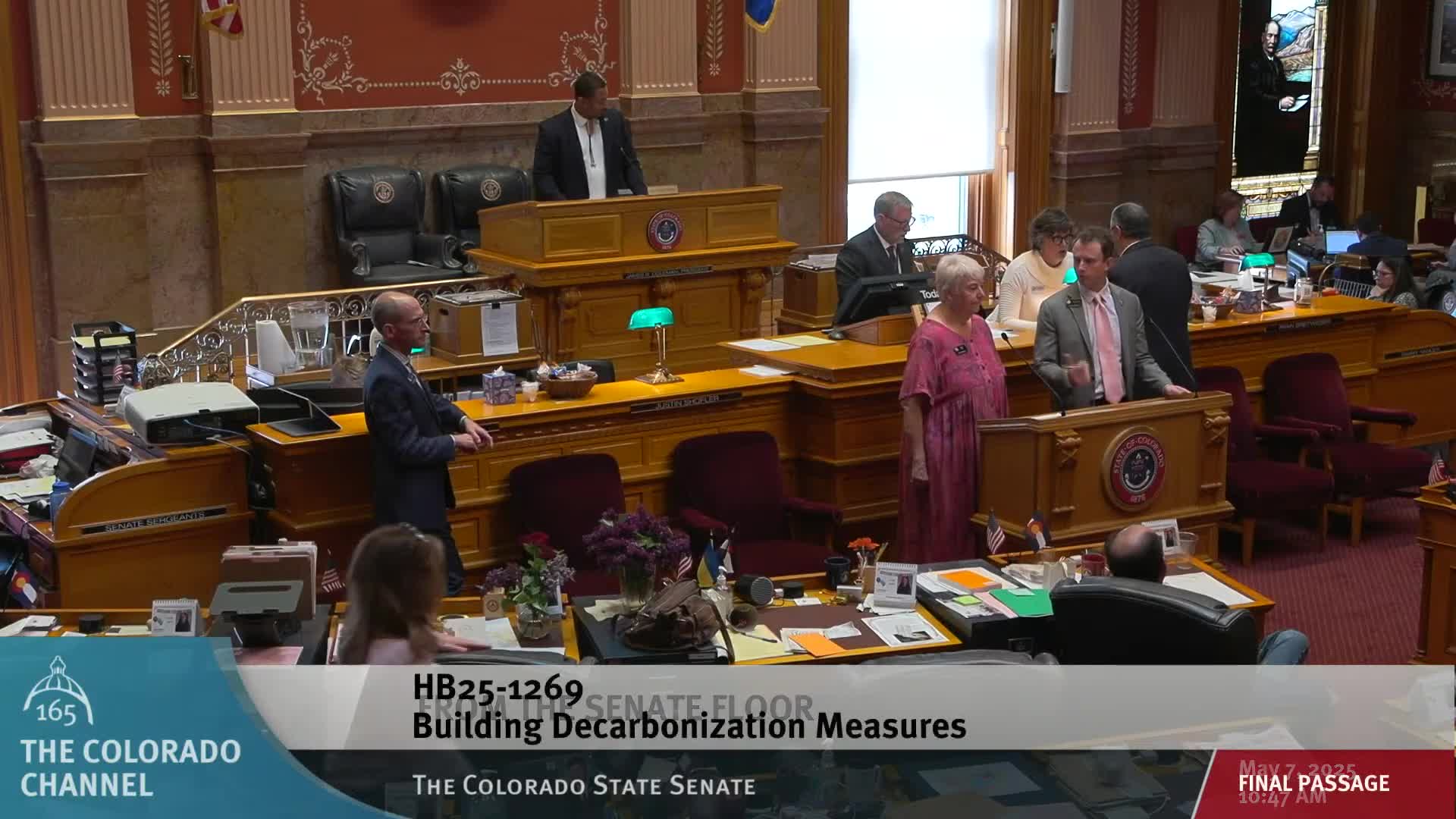Article not found
This article is no longer available. But don't worry—we've gathered other articles that discuss the same topic.
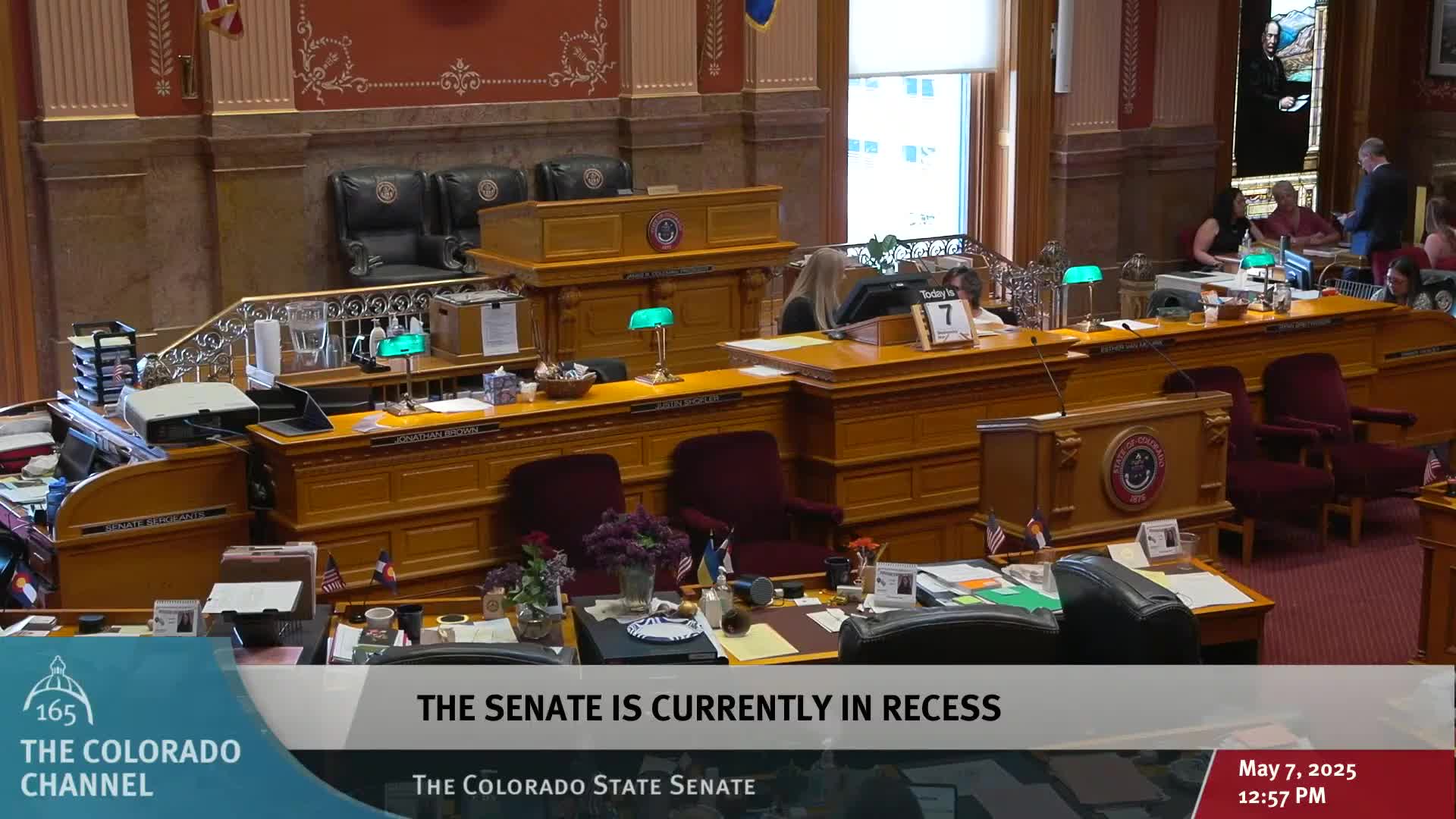
Votes at a glance: key bills the Colorado Senate passed or concurred on at the end of session
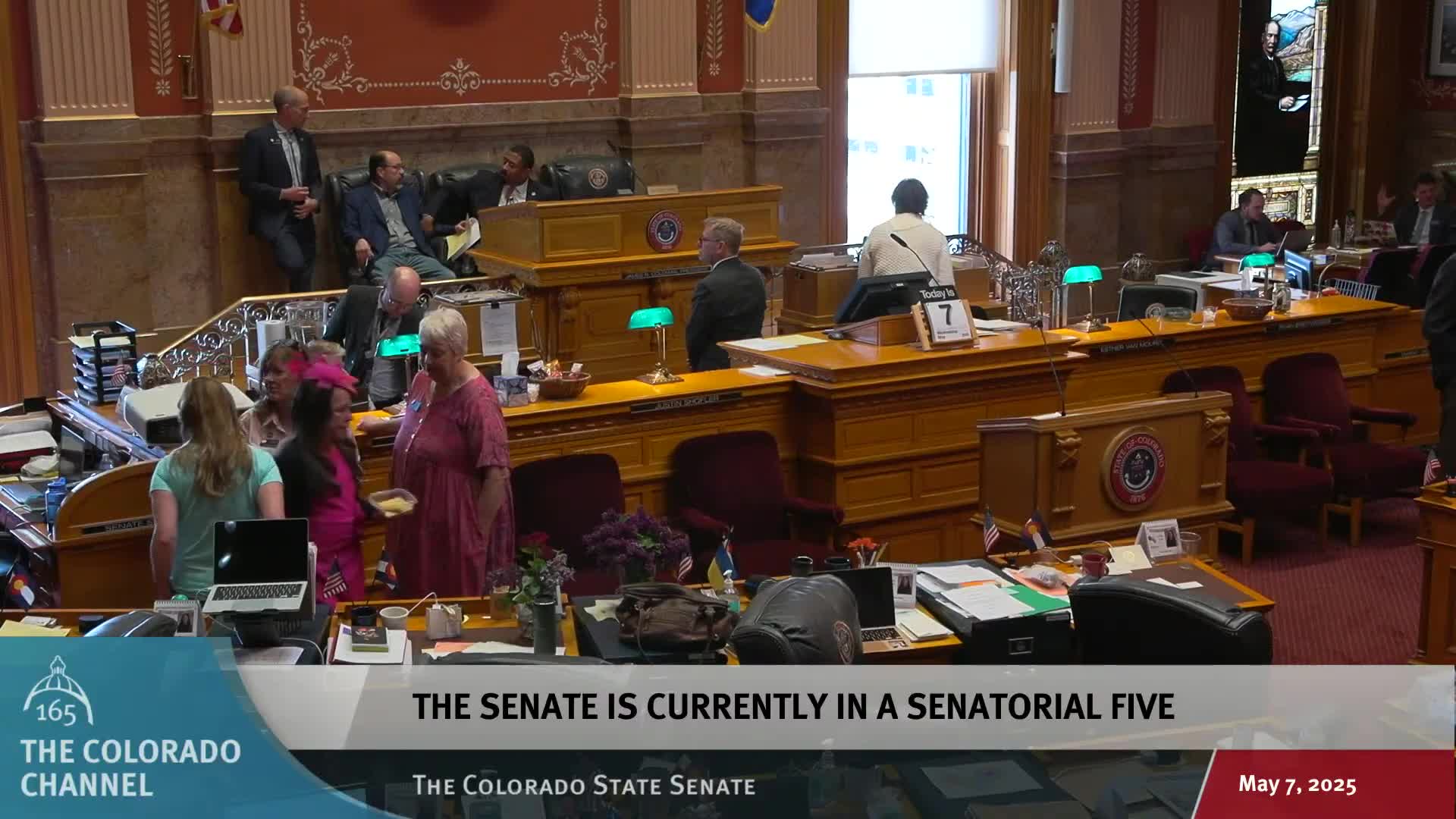
Senate advances transit-reform package after second conference committee; bill repassed
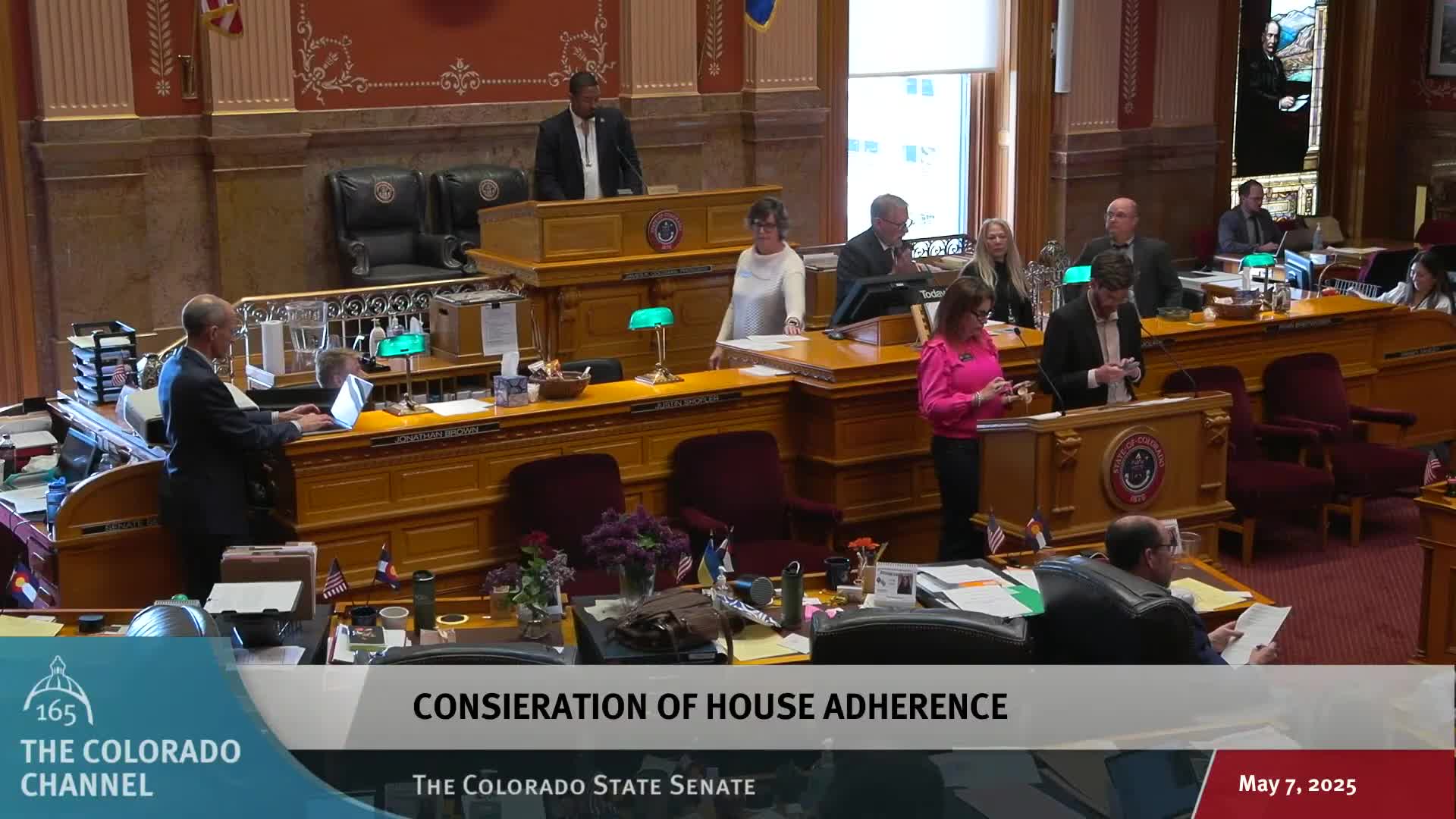
Senate accepts House amendment to allow petition process after certain motor-vehicle-theft convictions, then repasses the bill
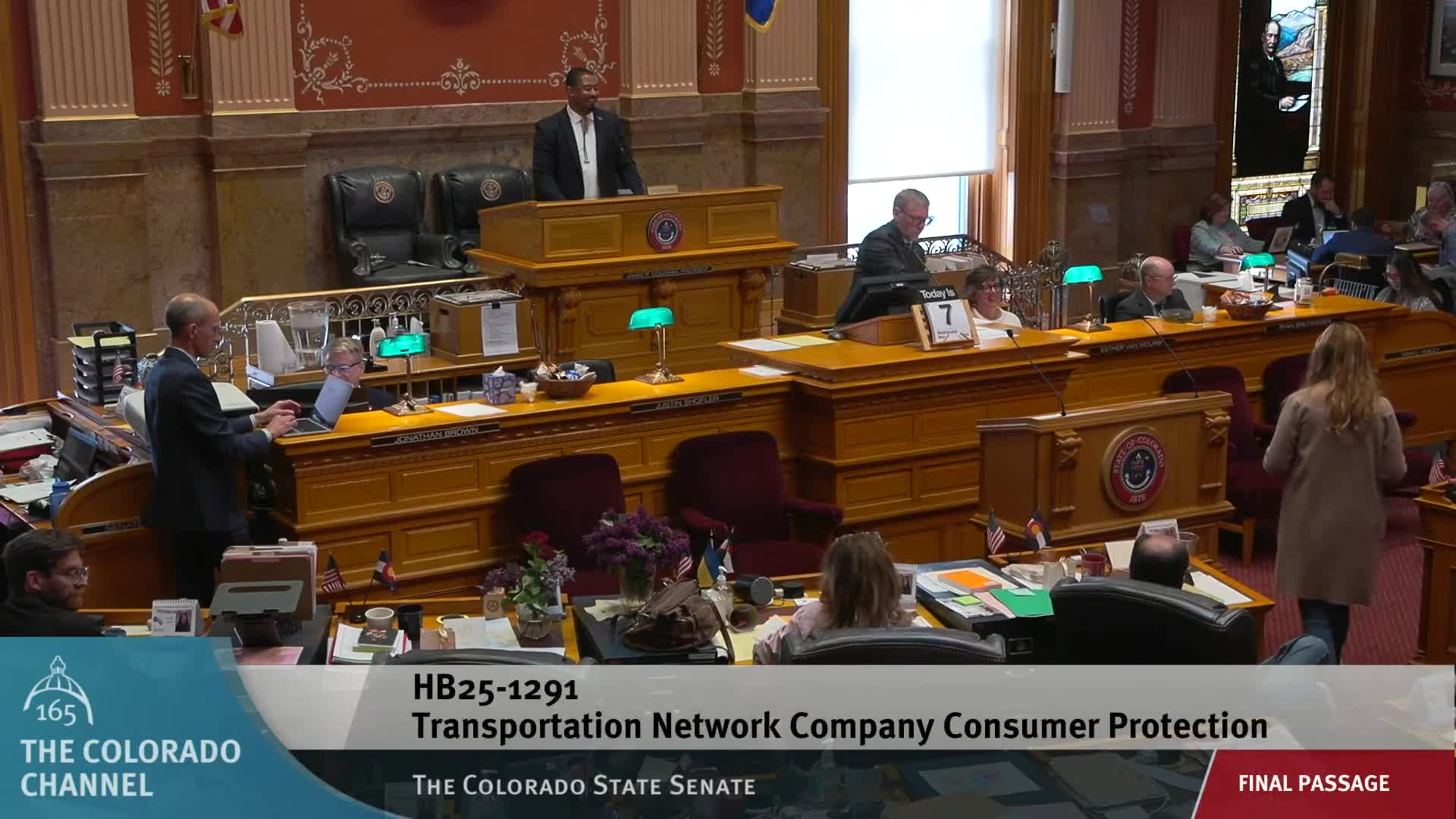
Senate passes rideshare safety bill after adoption of driver-requested tweaks
